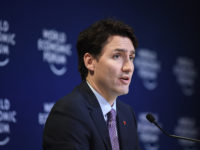The intellectual property chapter has not been a focal point of the NAFTA negotiations this week in Montreal, but the successful conclusion of the TPP11 (or CPTPP) serves as a reminder that it is likely to emerge as a contentious issue in the months ahead. The U.S. position on the NAFTA IP chapter is clear: it wants to replicate the original TPP IP chapter. Yet Canada now stands opposed to that chapter having backed the suspension of many of its provisions including copyright term extension, digital locks, notice-and-takedown, patent protections, biologics protections, and pharmaceutical plan rules. In fact, Prime Minister Justin Trudeau this week cited changes to the IP provisions as one example of how the government worked to make the TPP more progressive.

Fair Dealing by Giulia Forsythe (CC BY-NC-SA 2.0) https://flic.kr/p/dRkXwP
Copyright
Don’t Make the TPP Mistake Again: Why Canada Needs to Maintain a Progressive Approach on IP in NAFTA
When Consultations Count: Why the TPP is a Reminder of the Value of Speaking Out
In June 2016, I appeared at one of the government’s public town hall meetings on the TPP. Alongside then-International Trade Minister Chrystia Freeland (now Global Affairs minister), C.D. Howe’s Daniel Schwanen, and Unifor’s Jerry Dias, I had the chance to raise concerns with the TPP’s IP and e-commerce provisions and then hear from dozens of people who raised a wide range of issues. The town hall was part of a broad public consultation that was frequently derided by critics as a stalling tactic, yet the impact of the consultation was felt with yesterday’s announcement of a deal on a slightly re-worked TPP that includes suspension of many of the most controversial IP provisions.
Looking Back at 2017: My Top Ten Posts
With 2018 nearly upon us, many sites are taking a moment to reflect back on the past year and the posts and issues that attracted the most attention. On my site, the top issues are easy to spot: net neutrality, privacy, copyright, website blocking and Netflix issues dominate the top ten. My top ten new posts published in 2017:
The Canadian Copyright Review in the Age of Technological Disruption
The Canadian government launched its much-anticipated copyright review last week, asking the Standing Committee on Industry, Science and Technology to conduct a study on the issue that is likely to run for much of 2018. My Globe and Mail op-ed notes that while the timelines suggest that major changes will have to wait until after the next election, the report will be the foundation for future reforms to Canadian copyright law.
The instruction letter to the committee from Innovation, Science and Economic Development Minister Navdeep Bains and Canadian Heritage Minister Mélanie Joly points to the challenges of copyright, which invariably engages a wide range of stakeholders with differing perspectives.
Framing the Copyright Review: Bains and Joly Reference the Public Domain, Flexibility, Open Access and Limits of the Law
The government launched its copyright review earlier this week with a Parliamentary motion to send the review to the Standing Committee on Industry, Science and Technology. I wrote a preview of some of the likely issues, noting the efforts of lobby groups to restrict fair dealing, extend the term of copyright, and target intermediary liability. Yet the letter from Ministers Navdeep Bains and Melanie Joly to committee chair Dan Ruimy, which should be posted online shortly, confirms that the government appreciates the competing perspectives on copyright and the limits of what the law can (or should) do.










